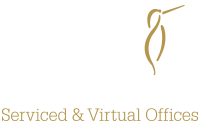
Is your business open to disruption?
May 16, 2023
Why should you meet clients in a professional space?
June 16, 2023Staff Absence
According to Statista the current sickness absence rate in the UK for 2022 is 2.6% an increase of 0.4% from 2021 and the highest rate since 1995 at 3.1%. Prior to this the rate was gradually declining with 2019 being the lowest rate at 1.9%.
So, what does this increase mean for small businesses? These results could be viewed as the fallout from the pandemic with issues relating to long COVID or perhaps due to contributing mental health which has left employees at greater risk of workplace stress and burnout. Or perhaps there is now better consideration of workers coming to the office coughing and spluttering alongside healthy colleagues.
However, there are the odd cases where some may go as far as using sick leave to boost their annual holiday entitlement, giving them additional days on top of what is already governed in their contract. Unfortunately for managers they are often kept in the dark as to why staff are off work which is why communication and safeguarding employees is so important.
Working from home
While the above shines a spotlight on those working in the office how does sickness affect those working from home?
Working from home has many advantages, flexibility, increase in productivity, improvement in work life balance, a reduction in commuting costs and perhaps even creates a healthier environment. However, there are also disadvantages mainly on the side of the employers which includes a lack of staff control, hindrance to collaborative working and the biggest issue of not knowing whether staff are working the hours set out in their contract.
These concerns already put considerable pressure upon employees to prove their worth and calling their boss to inform them they are sick might be something they feel uncomfortable about doing. Therefore, home workers could continue to work even from their beds when really, they should be convalescing and concentrating on getting better. This attitude of hiding at home has the ability to damage the fragile relationship between staff and their employers with serious harm to employee health and morale.
Solution
Trust is a word that is banded around with the solution to efficient and effective working from home and it should work both ways. Employers need to ensure that they are supportive of their staff whether at home or in the office and equally staff must return the work ethic continuing within the guidelines and principles laid out in their contract. If there are any discrepancies both parties need to feel comfortable talking about the issues and putting collaborative solutions in place. It is the duty of managers to ensure that their staff remain healthy and happy safeguarding them from the bureaucracy of unwarranted accusations.
The solution is to ensure the absence policy sets out the processes and procedures explaining the rules regarding staff sick leave and how this is managed by the company. Also, it is the employer’s responsibility to ensure this reflects any changes to the working status of its employees albeit from home, remotely or the office. Plus, managers should continue to expand the relationship with their staff by adopting open lines of communication to ensure the wellbeing of their direct recruits.
Summary
Working from home is nothing new but it’s the scale of the workforce now using this platform that has changed how employers and employees think about their work practices. On the positive side this works well with staff increasing their productivity while remaining happy and healthy.
For this relationship to remain positive, managers and staff must work together possibly checking in at regular intervals to ensure the overall wellbeing of their workers sits at the top of their agenda for safeguarding employees and their health.





